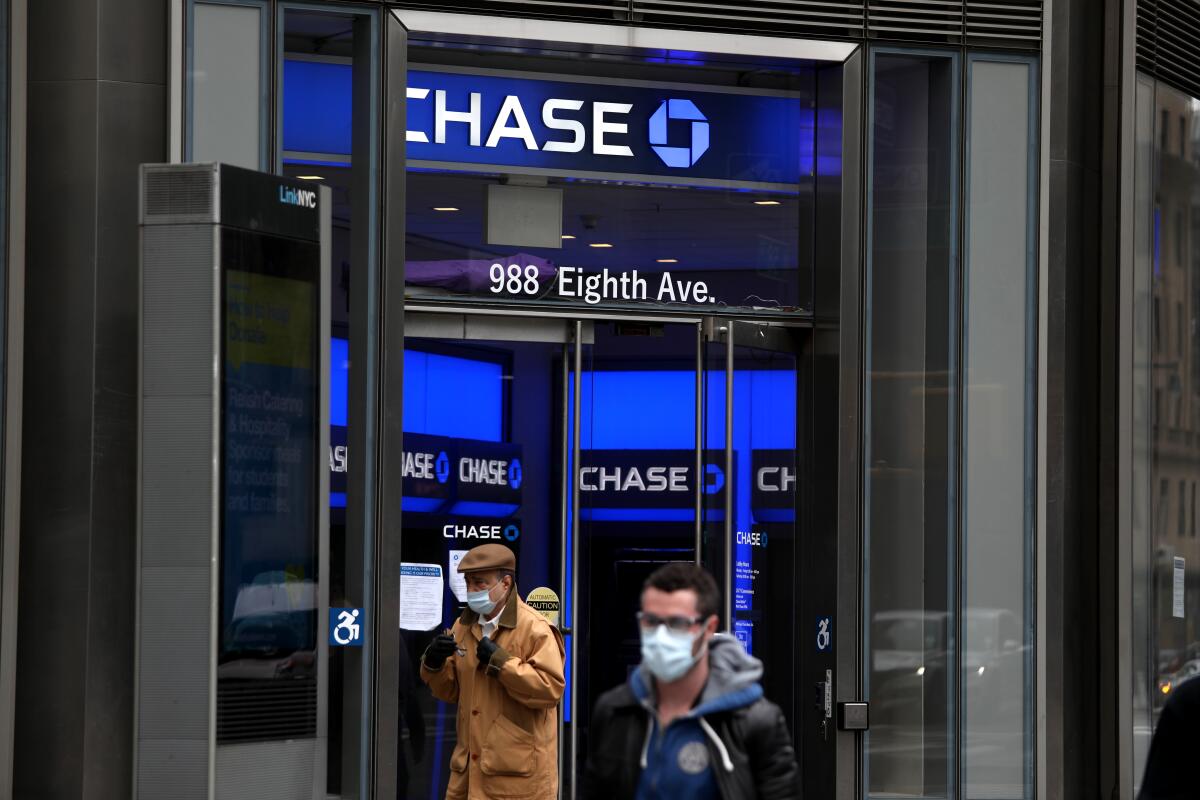Big debt is bad in the coronavirus downturn. But a consolidation loan might not be the answer

- Share via
Dear Liz: I have about $40,000 in credit card debt and am considering a consolidation loan. I’m current with my cards. My income is about $130,000 per year. Can you recommend a lender? Any cautions?
Answer: As you probably know, this is a bad time to be burdened with a lot of debt. But taking out another loan may not be the answer.
Personal loans — the type of unsecured loan often used to consolidate other debt — work out best when you can lower the rate on your debt, get it paid off within three to five years and avoid accruing more debt while you do so.
Unfortunately, people who take out consolidation loans often don’t, or can’t, fix the problem that caused the debt in the first place. If the debt came from overspending, for example, they don’t trim their expenses to match their income and wind up borrowing more. If the debt is from medical bills, ill health may cause them to incur more medical-related debt.
Another issue is interest rates. Personal loans typically have fixed rates, which is good, along with fixed payments so you actually pay off the debt over time. That’s in sharp contrast to credit cards, which usually have variable rates and minimum payments that don’t pay down much of your principal.
Unless your credit is good and your income secure, though, you may wind up paying a higher rate than you are now — assuming you can get a personal loan at all. Lenders have tightened their standards considerably in recent weeks because of the current and expected economic fallout from the pandemic.
Many people are better off paying down their debt on their own, making extra payments to get their highest-rate card paid off first, and then moving to the next-highest-rate card, while paying minimums on the rest. (Another approach is to pay the smallest balance first, to give yourself a psychological win that can motivate you to keep going.)
If you can’t pay more than the minimums, then you’re likely in too much debt to dig your way out on your own. Consider making appointments with a credit counselor affiliated with the National Foundation for Credit Counseling and with a bankruptcy attorney (the National Assn. of Consumer Bankruptcy Attorneys offers referrals) so you can better understand your options.
Stimulus funds don’t count as income
Dear Liz: I hold power of attorney for my aunt, who is in a local nursing home. Medicaid pays the bulk of her cost to stay there. Her $1,200 stimulus check was just deposited into her bank account at the end of last month. The state Medicaid rules require that she not have more than $2,000 in assets. I try to keep her bank balance below that each month, which can be a challenge. Do you have any idea how the state Medicaid will handle this additional income to her bank account? Will I have to pay the nursing home additional money from it or reimburse Medicaid? Or will she be allowed to keep the whole amount? I want to be judicious with her finances and not screw up her eligibility for Medicaid (her greatest fear is being thrown out on the streets).
Answer: Your aunt is lucky to have you, and fortunately there’s no need to worry. The payments are not considered income for recipients of Supplemental Security Income (SSI), according to a blog post by Social Security commissioner Andrew Saul. State Medicaid programs are not allowed to impose eligibility requirements that are stricter than SSI standards, according to ElderLawAnswers, a referral site for attorneys who specialize in issues relating to seniors.
Liz Weston, certified financial planner, is a personal finance columnist for NerdWallet. Questions may be sent to her at 3940 Laurel Canyon, No. 238, Studio City, CA 91604, or by using the “Contact” form at AskLizWeston.com.
More to Read
Inside the business of entertainment
The Wide Shot brings you news, analysis and insights on everything from streaming wars to production — and what it all means for the future.
You may occasionally receive promotional content from the Los Angeles Times.










